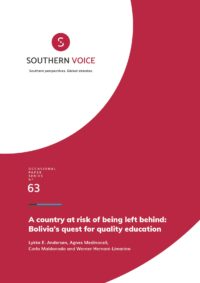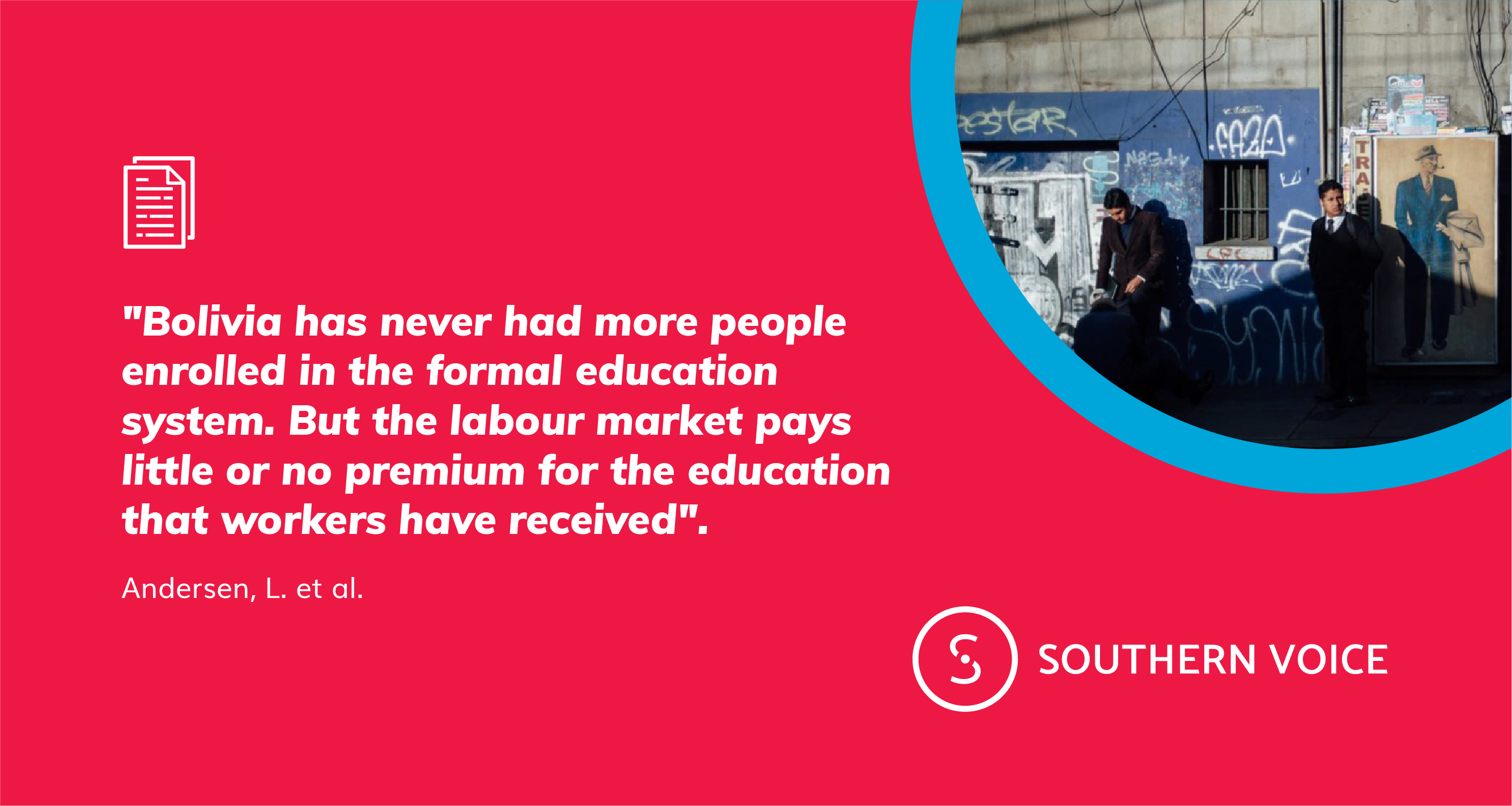 While the Sustainable Development Goals (SDGs) are universal, the challenges of reaching them are unique for each country. This paper provides a study of one particularly challenging case, namely SDG 4 (quality education) in Bolivia, an entire country at risk of being left behind due to a severe lack of data on educational achievements in the past two decades. Bolivia initiated an Education Revolution in 2007, aiming to make education more inclusive, equitable, collaborative, and relevant for reaching the ultimate goal of living well in harmony with nature. Implemented by law in 2010, this initiative appears to have been quite successful at getting almost all children through primary and secondary education, irrespective of gender, ethnicity, and income levels. Unfortunately, the labour market does not seem to value the education received. Indeed, for young, urban, non-indigenous men the first 15 years of education do nothing to increase their wages. This is at least partly due to global processes outside the control of the Bolivian Government, e.g. commodity prices, which impact the structure of the economy and the demand for qualified labour.
While the Sustainable Development Goals (SDGs) are universal, the challenges of reaching them are unique for each country. This paper provides a study of one particularly challenging case, namely SDG 4 (quality education) in Bolivia, an entire country at risk of being left behind due to a severe lack of data on educational achievements in the past two decades. Bolivia initiated an Education Revolution in 2007, aiming to make education more inclusive, equitable, collaborative, and relevant for reaching the ultimate goal of living well in harmony with nature. Implemented by law in 2010, this initiative appears to have been quite successful at getting almost all children through primary and secondary education, irrespective of gender, ethnicity, and income levels. Unfortunately, the labour market does not seem to value the education received. Indeed, for young, urban, non-indigenous men the first 15 years of education do nothing to increase their wages. This is at least partly due to global processes outside the control of the Bolivian Government, e.g. commodity prices, which impact the structure of the economy and the demand for qualified labour.


